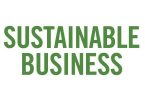eTN: It is my understanding that I have Guido Bauer and Bradley Cox sitting in on this interview. Please explain to our audience what it is exactly your respective roles are at Green Globe?
BRAD COX: My name is Brad Cox. I’m the director of communications for Green Globe Certification. I also fulfill the role as chief operating officer. My role predominantly is to help our clients and certified clients to get out in the marketplace with messages regarding the sustainability achievements which they have made. These achievements can be with regard to environmental savings – reducing electricity and reducing water usage – or it might be to do with the corporate social responsibility activities they have been engaged in. Just today I was reviewing the work that one tourism property has been doing in investing and rebuilding a local school. So these are the kinds of information and stories that I try and help to get out into the marketplace and to help people understand the benefits of certification.
GUIDO BAUER: My name is Guido Bauer, CEO of Green Globe Certification. My role is mainly in the sales and marketing, in working with clients with international hotel groups and businesses around the world and negotiating contracts, marketing strategies, and helping them through the certification process.
eTN: I am just basically going to ask questions, I’ll leave it up to either of you to decide who wants to respond to which question. Green Globe is a publicly-traded company; given that Asian and European countries seem to be inching their way out of the financial crisis faster than the US, some overzealous pundits are even going as far as forecasting a 2011 Great Depression in the US. Does this alarm you? What is your take on this? And does Green Globe have a contingency plan should financial market matters make a turn for the worse?
BRAD COX: Green Globe certification is a privately-owned company based here in Los Angeles, with partnerships covering 83 countries around the world. As a private company, we offer sustainability services, and that means we provide the certification program – Green Globe Certification program – and we work to build partnerships up, as I said, covering 83 countries with consultants around the world, helping tours and businesses to understand what they need to do to achieve certification. Regarding the public company – Green Globe International (GGI) – that’s a separate company, and they are the providers of the license worldwide. Our company, Green Globe Certification, has a license agreement with GGI. Now with regarding the issues around global economies, etc., it really isn’t having an effect on our company, as a private company here in the US, because much of our business is overseas. In Europe, we are doing a lot of our business these days as Europe works through the global financial crisis, they seem to have maintained a determination to stick with the agenda surrounding climate change and also with the many decades of work they have done in the green space or green policy development and also corporate social responsibility of companies. So as a private company, Green Globe Certification, we find that Europe is a very good market for us. We find that we are expanding in Asia as well, and in the US we find that, I suppose, the ongoing debate around climate change still has not been resolved to a way where we found a great lot of attraction in the American market.
eTN: How has Green Globe Internatiobnal been performing as a publicly-traded company?
BRAD COX: Of course, I can’t speak on their behalf.
eTN: So that is entirely a separate organization?
BRAD COX: That is correct, and you’d be best to direct questions to them, but I would say that at this time, for many publicly-traded companies, there are many, many challenges. I don’t think anybody would move away from that. I think in the initial idea of Green Globe’s license being held by a publicly-traded company, I think was a very good idea. I think the global financial crisis wasn’t anticipated to cut as long and as deep, and I think that there is going to be changes in that respect. And I think as a publicly-traded company, the brand owners are going to have to take a look at what they can do to work through the challenges at this time.
eTN: Being that Green Globe is a private initiative, how have governments or regions reacted to your aims and business model? Are the ones you have been in contact with for or against what you are trying to achieve?
BRAD COX: I think what we found is the governments we are working directly with are in small countries and who are very much dependent on tourism. And, therefore, they are very much considering Green Globe for destination certification. In that regard, we have had ongoing discussions, and I think we are moving closer now to finding the best possible method of certifying a destination. Now, without revealing any commercial information, I can say that clients or governments in the Caribbean are in the forefront of receiving this kind of certification. I think we’ll see next year, a move to certify the first tourism destination as Green Globe. So in that regard, in a controlled sort of space, in a system where tourism is the predominant earner of income, I think Green Globe is working very well, because the framework that Green Globe uses for its sustainability criteria is highly suitable to working with a government of that size. Now, on a much larger level with trying to work in the United States with state governments, etc., we have had some experience here in California, and we found it very, very challenging. I think at this stage, it’s almost impossible to fit our certification criteria and style into the agenda, which particularly the California state government is used to doing. We have worked with the Los Angeles City Hall on one project, but it hasn’t been successful for us.
eTN: Why do you think, in your opinion, why is it easier to approach the tourism-dependent smaller countries than say California?
BRAD COX: I think predominantly because tourism, for example here in the states, is not considered an industry the way it’s considered in countries that weight tourism as a primary income earner. In other words, here in the United States, the meetings industry considers itself related to but not completely part of tourism. Hospitality considers itself part of tourism but not completely a tourism industry. In other words, the restaurants of Los Angeles, which we have done some work with, see themselves as sort of outside of that grouping in some sense. So, where we work with governments best where governments have been able to work with industry to define tourism as a highly-important, well-defined bit of sectors, whereas here in the US, the sectors are more separated. So it’s a challenge, and, of course, we are only a small organization, so it’s something we are working towards in the future. I think we will get there, but we are going to have to put in a lot more work at the government level.
eTN: There are private organizations, especially in Los Angeles; I am aware of –it’s called “I love LA.” It’s an organization that is promoting tourism there, which is actually a private initiative. Are you working with them in terms of certification perhaps?
BRAD COX: No, we’re not. We’ve been invited to be part of the LA Green Business program, but to date we haven’t been able to formulate a clean and clear business model for ourselves as a part of that. I think certification is, I can’t say in a state of infancy; it’s still a work in progress here in the United States. What certification means is maybe a bit different to what it means in other countries. I find that I think the real challenge is that there is still the challenge of the sort of so-called public-private partnerships in this place, and that means when it comes to like the LA Green Business program where people would like to provide a certification program throughout the city, it really is a partnership between academia – colleges – private companies, and government. I think the challenge there for us is to find a really satisfactory model to follow, which we haven’t been able to do at this time. So these are some of the challenges that we are meeting.
eTN: Brad, in 2009, you described sustainability as having three pillars – social, economic, and environmental. With all that is going on, do you regard each pillar as equally important, or have you come to establish them in order of importance?
BRAD COX: I think it’s not really up to us to establish the order of importance. I think it’s up to clients and depends where they are taking their business in, what town or destination they are working in also defines the order of importance. So, irrespective of those three pillars, of course, we have climate change being the force major one now in the circle, bottom line. Climate change is, I suppose, in the last number of years dominated or come to dominate the whole sustainability agenda in some sense. So more and more I see activities being linked to energy saving – the notion of whether we are going to go into carbon trading or generate a taxation model, etc. So these, in terms of what is important in sustainability, I think we are still maintaining this three pillar approach, and we are standing back and watching what is going on in the era of climate change, because it’s really making our overall debate to some extent. It hasn’t been resolved at the national level, and therefore, can’t be resolved at the state or a local level as to how countries will determine how to take that forward. I think whether it’s a carbon emissions scheme or trading scheme, America has yet to resolve what it’s going to do, etc., so there is still a lot work to be done there. Fundamentally, however, I think by sticking to our core areas of social, economic, and environmental, we see great achievements by our clients, our certified clients, in their business and in their destination.
eTN: How would you define sustainability under these particularly financially trying times? What is Green Globe Certification’s definition of sustainability now?
BRAD COX: Green Globe Certification’s definition of sustainability remains true to the original ideals set out back when the first standards were developed. However, we have benefitted from global sustainable tourism and the initiatives of creating a global sustainable tourism criteria. That effort, which is a combination of United Nations Foundation, NGOs, other interest groups, and also, of course, all of the certification companies around the world, or certification programs around the world, has delivered a very important set of criteria, which really defines sustainability. Now, having done that, the challenge is how do you apply that universal set to all the different geographical regions? I think that is where we have had some success and that we have been able to work with our partners, and people who visit our website, greenglobe.com, can view the partnerships we have. We have been able to find ways to adapt this universal set into the local needs and also the local capabilities and yet still maintain true to the promise of what sustainability is. Now, in these financially-challenged times, of course, cost savings is always going to be something that we are going to push, and that is both behavioral and looking at how we developed systems to be brought into businesses to save energy particularly. But, again, those capital investments are something that may not be possible, so we come back to behavioral change. So the most cost-efficient means to achieve cost efficiency is an area that we are really pushing at the moment I suppose. And the other thing is, in these times, job security becomes a major issue. The information, wage levels, all of these issues become highly sensitized. People’s confidence in their ability to save for the future for their kids’ education, etc. becomes again sensitized. So I think the social aspects now have to really be brought forward, and again, I was just reviewing this morning the work that a tourism resort in Jamaica has done in the rebuilding of a local school is I think highly valuable, because in this time while the economy may be cooling, slowly, or is indeed changing, we have to continue to invest in the education of the oncoming generations, because that is the only insurance against even harder times in the future. So I’m very excited, and I suppose are going to be promoting those issues in what we do.
eTN: In 2009, I asked you [Brad] about the Caribbean fiasco; how have you resolved that conflict?
BRAD COX: Again, I’m not sure if we’d describe it in those terms, but certainly in the Caribbean, we have invested directly in a partnership with the Caribbean Alliance for Sustainable Tourism Association.
eTN: When you say “we,” again, it’s Green Globe Certification not Green Globe International – that’s a separate entity.
BRAD COX: Since that time I personally have been working directly with Green Globe Certification and through my collaboration with Guido Bauer, the CEO, we have decided, over a year ago, to invest directly with CHTA in a partnership to resolve a lot of the issues, and while we were working through the challenges. I think the issue is always going to be having clear representation in the region, and what we have done in that regard is we have appointed Wendy Walker Drakes, now our representative, to work with CHTA and to work on the ground in the region.
eTN: Is the Caribbean Alliance for Sustainable Tourism your answer to the Caribbean controversy?
BRAD COX: I’m not sure if I’d describe it as a controversy, and I think CAST did delay the industry involved with CHTA. Our work with CHTA is strictly focused on certification. We believe that certification provides many of the opportunities for environmental planning, training in various areas of CSR and environmental issues and further education, and the list goes on. So we have been focused on actually trying to build the membership of Green Globe via the collaboration with CHTA, and with Wendy being based in Barbados, we are seeing some good results there. I think that will over time bring about a lot more, as I said, education, training, and knowledge and so on into the area
eTN: So that is the focus now – to educate.
BRAD COX: The first is to make sure that (a) we provide real funds, financial resources to CHTA to invest in their efforts and at the same time we also invest in putting some local representation on the ground. As I said, with that in mind, Wendy herself is building a network with other consultants and partners to help deliver our services throughout the Caribbean.
eTN: In 2009, Brad, you mentioned Green Globe’s relationship with various organizations such as the World Travel and Tourism Council (WTTC) and the United Nations World Tourism Organization (UNWTO). As we all know, these two organizations have had a change in leadership recently. How has this impacted Green Globe’s relationship with these respective organizations, if any?
BRAD COX: To be perfectly frank, I think the changes at Green Globe have probably had more impact on the changes in those organizations; in saying that our organization, our company, Green Globe Certification, has always looked to GGI as the member of both organizations. Now, we will be considering and we are considering direct membership with both organizations so that we can start to have a much clearer discussion with both WTTC and UNWTO about the business of certification and that is how we roll out certification as a professional fee-based service throughout their membership. Now the challenges for GGI in … of those organizations again is directed to the company GGI, but for us, we will be looking to introduce the agenda that is that certification is a professional service, it is based on a fee and a membership, and that to be truly sustainable, we have to be … throughout the industry through the collaboration with both those organizations.
eTN: In this respect, explain your affiliation with Green Earth.
BRAD COX: Green Earth, I understand, we have had a few talks with some of the principles over there, but I don’t know enough about Green Earth at this time. I think where we share some commonality is that there is,, I suppose still an ongoing issue surrounding what is the green economy – what does the green economy mean to governments, to companies, to communities, and I think that is where next year we will probably have more to say regarding our work with Green Earth. We have spent the last years, since last I talked with you, and moving across to Green Globe Certification, focusing on the commercial sustainability of a certification company, and having done that, and I think being successful, we are now moving back to more of our roots, I suppose, in looking at how we can work with the communities particularly at the local level rather than the … government to help them understand what the green economy means. Now again, carbon trading – whether you are a nation that implements these trading systems, whether you are a nation that is authorized to generate credits – for example, in the Caribbean, many credits can be generated through programs there, it depends on which country you are talking to, the conversation’s going to be different, and I think working with Green Earth, we as a certification company understand that better and be able to explain the linkages to certification and the community.
eTN: So do you consider Green Earth as an affiliate now or are you working towards that?
BRAD COX: Yes, certainly we are working towards an affiliation as we do with many others. I think that clearly the, again, government and industry, and particularly talking about the travel and tourism industry, wants to see some clarity of purpose and through affiliations with Green Earth and others, we can start to provide more and more clarity as to what role we play, what the effect of that is, and what are the associated costs and benefits.
eTN: Why is it significant to appoint an accredited auditor for a region or a country? How does this work, really? Explain the selection process.
BRAD COX: Under the … which we work towards, you need to have a third party or independent auditor to review the process of the program and certification on site at the local level. So in our respect, we manage the sustainability program or the so-called certification program and developing in collaboration with others … international agreements and various other innovations … we develop the criteria and the indicators and so on. Now, having developed the program, promoted it, and delivered it … it’s up to the client to actually meet those criteria by completing the majority of indicators, and many of the indicators are mandatory that they have to complete. Having done that, we need a third party to both the client and ourselves to come in and review and make sure that what the client claims they have done, has been done, so they are in line … of having an auditor in a region. They provide the verification that is needed to truly show that the green claims or sustainability credentials or achievements that are being made by the client through our program are real and they are being measured … So that’s fundamentally the role of the… Now, in addition the auditor, just through the work that they do, is naturally creating more awareness of the program, and that’s important, too. We need our auditors to not be shy about creating awareness of our program and to any interested parties, point them to our operation so that we can provide further information about what we are doing.
eTN: Can that third party be a government branch or will that open problems to the whole process?
BRAD COX: Again, depends on which region we are talking about and what country.
eTN: But that is a possibility?
BRAD COX: Intuitively, we would say no, but based on the wide variety of governmental systems around the world it is possible, and indeed we are working along those lines with one destination in the Caribbean particularly, because what we find, of course, is that governments in any tourism destinations are the major, I suppose, directors or enablers of tourism business and have a lot to say and what goes on at the … yes, that is possible, but again, we have to be mindful that what we are doing is sticking to achievement of a set of indicators and a set of criteria, which are accepted as being truly defining sustainability.
eTN: Are you finding it is easier to designate a regional partner than individual countries?
BRAD COX: No, it’s always a challenge. There’s a lot of aspiration both by government agencies and also private companies. When I say private companies, I mean companies who have been involved in environmental consulting for many years, to become part of what we are doing. The challenge, however, is that as we are a private company and … profits being invested back into the company to continue to enable us to do the good work that we are doing, we need partners who can actually deliver along those lines, and quite simply some organizations, whether they be government or NGO or consultancies, aren’t equipped to do that, but we are always open to an approach, and we always, if we feel confident, we give a sort of time for that relationship to build and in some cases it has worked very, very well. In other cases, it hasn’t work well, and both parties agree to move on, and at the very least it is an educative experience for all.
eTN: So, basically your ideal situation is Green Globe Certification functions in macro terms, and your partners will micro-manage your initiative – is that right?
BRAD COX: Yes, you could say that, but to make sure that our partners are equipped with all the tools and so on they need, we need to engage at the micro level as well, and we have constant contact and … we provide public relations as well on top of the various things that we do directly with clients. So, you could say that – it’s sort of a macro/micro relationship. I think the best way to describe it is that the partners we form have local knowledge and local experience. Just as we provide them an internationally-accepted sustainability certification program, they provide us with local knowledge and understanding, which helps to improve their program and adapt to the various needs at local levels.
eTN: In 2009, Brad described the certification process, noting the difficulty of establishing a so-called “universal” standard, as a “journey;” how has this journey been so far? What challenges have you encountered in this “journey?”
BRAD COX: It’s been a learning curve for all of us. I think on the positive side, what has come out of it is the global standard with tourism criteria seems to be universally accepted now. We certainly have accepted a lot of their work, we have included it in our work, we have acknowledged that, and we continue to acknowledge that. We want to be certified by that organization when they have that function available. We think that it’s imperative that the industry sees some kind of standardization or some norms adopted, we think, whether it’s a government-led certification program or a private company like ours. So that’s on the positive side – that has been achieved. On the other side, where the challenges lie, how do you make that locally relevant is a daily challenge for us. We were constantly, and I would say almost it is a daily communication with indicators, interpreting these criteria and their associated indicators to make this thing work, and in some cases it doesn’t, and we have to then consider what we do about that. If it’s a mandatory indicator, we can’t do much about it … and in many cases the clients are looking at our … So, that is a real challenge; that can be in some cases cost-prohibitive. But what we found is because there is quality and purpose through this clearly accepted international documentation, more and more businesses already understand this and are prepared for what we are doing on the ground. But it’s a daily exercise with both … consultants and clients each day talking about these issues.
eTN: In simple terms, can either of you explain the value of Green Globe certification?
BRAD COX: The value of Green Globe Certification lies with the client and the client’s ability to gain the maximum value they can. So in terms of what is the minimum value is that they receive a program which is internationally accepted in the industry and acknowledged through the work of … a lot of the work that we have done. So, again, at the smallest level or the minimum value, they are getting a program that they can look at and say we have here defined for us what is a sustainable practice and how we can operate and manage … and for the price which we deliver that on the ground that is very, very cost effective and valuable service to provide. Now, coming out of that is the work that they do to achieve certification, and in many cases a lot of the work that they are already doing meets the indicators, and they just don’t realize it. It’s part of the whole package of accountability, and from that they can communicate these achievements, they can look at that as a contribution to their bottom line and really start to understand how their business is already benefitting from sustainable practice. Beyond that it’s up to the individual client and the collaboration with us and that can result in communication and marketing. It can result in sourcing consultants who will help them adopt new systems or practices, new facilities for greater savings in energy or adapting to water shortage, etc. So, again, up to the individual client to get even further value. So, I think based on the prices that we deliver this to market, based on the partnerships we have and the … that can be provided through third parties, etc., it’s a huge value to align businesses with what sustainability is so that they can confidently talk the language of sustainability to customers, to their investors, to their staff. In other words, they can know what green is.
eTN: Have there been a change in fees involved in light of what is going on or have they remained the same?
BRAD COX: We have maintained the fees at the same level for the last 12 months. We are reviewing that now, of course, as it comes towards the end of the year. I don’t think there will be any significant changes.
eTN: Our interview was in April of 2009. So, the prices then were different from today?
BRAD COX: Since April of 2009, we haven’t changed the pricing, and I can pretty much assure you that we won’t change the pricing, other than new countries where we are getting new businesses coming on board, we might have to adapt pricing to … local and to all the rates for the regions that we work in at the moment on our website.
eTN: You have greenglobecertification.com to direct people who are interested in being certified – that’s what you mentioned last year. Is there a change in that?
BRAD COX: Yeah, I am pleased to announce that since then we have acquired www.greenglobe.com. So Green Globe now does the hiring for Green Globe Certification, and everything that you need in terms of … certification services for sustainable … is found at greenglobe.com
eTN: The concern here is trying to differentiate you from Green Globe International and Green Globe Certification.
BRAD COX: It’s pretty simple. Green Globe Certification is a private company concerned only with the delivery of certification services to the travel and tourism industry.
eTN: And do you have anything to do with Green Globe International?
BRAD COX: We purchased the license from them and that’s it. In terms of the brand and all the rest of it, that’s the business of Green Globe International, and we don’t take part in that.
eTN: You have sent out recent releases on “Green Globe University.” Explain to our readers the aims of this initiative, as well as who are its target audience.
BRAD COX: You know, sometimes you really put your foot in it, and this is one of those times. We had this enthusiasm or rush of enthusiasm to create the Green Globe University, and then we sought out academic partners who work with us who then said okay, how about you change it to Green Globe Academy, and we said okay. So we are now calling it the Green Globe Academy, and it’s essentially…
eTN: It’s now Academy?
BRAD COX: Yeah, it’s now Academy. I think that’s better, internationally speaking. In some regions it’s okay to have a university, but others, they were very particular about the use of the word university. So, it’s Green Globe Academy, and essentially it’s providing all of the training services both for people, like consultants, who want to understand what certification is. There’s a sustainability training program based on the Green Globe standard, and there is also a training program for Green Globe auditors, where they walk through the process of becoming a Green Globe auditor, and then they graduate in our accredited… And that seems to be the main two functions of … at the moment. We’ve got a free trial course there for businesses or individuals who want to understand a little bit about what we do. And we are also offering a training program for hotels and other accommodations in terms of how to build a green team and how to address the issues of sustainability and … we’ll be building that out through to the end of next year and into next year into the different sectors that we work in. So, I think the next one up there is for the cruise ships – a training program for … cruise ships and particularly we are doing a lot of work with the German Convention Bureau and the … in Germany, looking at planning for professionals in that area as well.
eTN: How has it been received by travel and tourism?
BRAD COX: It hasn’t been a huge success for us at this stage, but it’s certainly been working well, and it’s helped us to streamline our whole training process, and we are certainly getting more people signing up than ever before because we’ve got this presence on the web. And I think people now are more familiar with web-based elearning than coming to headquarters and sort of taking a day seeking training – actually it’s a couple of days. With the elearning tool bringing the Academy online, they can do it at their own pace, and I think that’s helping to increase the number both of consultants and auditors.
eTN: What progress, if any, has been made in addressing climate change from Green Globe’s perspective?
BRAD COX: I think there are a couple different levels, which we are operating on there and which we have been trying to … just being, for us personally as a company, being much more rational about the travel we do, and we are really looking at the places and trade shows and so on that we go to – trying to maximize the time that we are at a destination. Of course, WTM, I just attended, has to be a preeminent one that we are going to. At the same time, in the macro approach, we are sort of being encouraged or asked by a lot of people for grand plans and grand schemes to adjust climate change, but we cannot and we will not move away from the fundamental, and that is that on the ground with clients, which means the staff and the people surrounding a tourism business … if we can work at that level and get results, we are contributing overall. So, we are not policy makers for government, we don’t get to sit … What we do, however, is every year, we require all of our clients to improve on their indicators and that means in terms of energy, water, and waste, which is directly related to climate change, then they must be consistently making improvements, and there’s a variety of means that they can do that. And I think that’s the best contribution we can make, because if there’s nobody at the grassroots level doing this, then it doesn’t matter how many policies and programs or legislation you pass if nothing is being done. So we are going to stick with that. And that means we have to get more clients; we have to get more and more clients doing more and more reactions … to help to make a difference, and that simply is going to be our part.
eTN: You were very specific last year in our interview– you said you were working on an initiative called the sustainability and carbon neutrality plan. How is that coming along?
BRAD COX: I think that’s folded in with the destination approach now, because what we realized at the time, there was a lot of enthusiasm particularly in the state, and again I’ll point to Australia that these ETS trading schemes were going to be part and parcel of major economies around the world, and we were shooting along those lines, I suppose. Of course, since then that gender has changed remarkably and certainly the clients we have been working with have also had to adapt to that. So, we have rolled a lot of that work into the destination certification. I think we have become more realistic about what we can achieve, and what we can achieve is what can be measured in terms of clients’ improvements, and I think we’re going to stick with that. Carbon trading and all these other issues, I think, are always going to remain outside of what Green Globe Certification does because we need to continually as we do now get the fundamental brick, and that is working with clients to make improvements in reducing their energy consumption.
eTN: Of course, and the way to do that is to get more clients.
BRAD COX: I think so. Certainly that provides more capital for us to invest in improving our company and getting even more people in to participate in that process, and it’s hopefully a virtuous cycle that we can continue to invest in.
eTN: You talked a little bit last year about a food crisis. As you know, there was a UN conference on the food crisis in Rome recently; is this issue something that you are addressing? I remember you spoke briefly about it last year.
BRAD COX: It’s a topic that was presented to us as a major issue. I mean, clearly what is being reiterated again and again is that in the area, there is a wealth of food production and distribution that is the challenge, and that then comes back to investment in society on the social side. So again, our ambitions, while grand, are being honed down to what we can achieve, along with everybody else in the green space, and I think we have to help our clients and, of course, our clients are some of the more influential bigger businesses around the world who work with local governments, etc., to start to consider their purchasing policies, how they procure food and so on and consider buying local and how that might work. Now, these aren’t certainly going to solve some of the major issues of food shortages but they are contributing to understanding, being better aware, of how food is produced and the real cost of production and how to achieve that, and I think that is educated to the clients who are enjoined in tourism destinations. They can then take that knowledge back to where they come from and apply it where they vote and the governments they support, and the policies they deliver regarding the growing of food, the exportation, and, of course, there is the whole issue of taxation, etc.
eTN: With all these different transformations, is it fair to say that Green Globe is in its 16th year, and what do you consider as your achievements as an organization thus far?
BRAD COX: I think our achievement to date is we haven’t been shy about trying things. I think our looking at taking the brand into a publicly-traded entity in the US was a very gutsy move – certainly it wasn’t without creases, and there have been many challenges regarding that. So, in that respect I don’t think we can walk away from the fact that we have tried to do lots of interesting and new things. At the same time I think those experiences and others, particularly what is going on in the world of the so-called green economy and politics that the world has produced regarding climate change, has only made it more resolved to be better at what we do specifically with what we do on the ground with clients. As much as our ambitions, like many in the green space, tend to reach out and be global, we always have to come back to that age-old maxim that acting local is also a very important part of the overall process. So, I think since last I spoke to you until now, our greatest achievement has been to get that representation into the local destinations. We have more than a dozen partnerships now, as I said, covering 83 countries. We promised to deliver a local representative into the Caribbean, we promised to invest in the tourism association for the industry in the Caribbean, and so actually we have done that. So, I think that points to where our achievements are, and that is putting ourselves on the ground, in front of the clients, and working with destinations.
eTN: You keep mentioning challenges.What are the major challenges you have faced, and how have you resolved them?
BRAD COX: I think the ambitions of the green agenda, politically speaking, really peaked last year or in the last 12 months, and while there was a lot of aspiration, I think there was still a lot of challenge in defining what is the benefit of going green. Now, a lot of those things are now well understood and well used every day. Some of the issues that we took on years ago in terms of improving the bottom line by taking a green approach, now are just accepted as normal, as something real. So, the challenge is how do we keep pushing those boundaries forward and finding more improvements, more benefits for our clients. The challenge is also that our enthusiasm that erupted over the last year has now somewhat been curtailed by the global financial crisis, the agenda with climate change, etc., and we need to… I think the challenge for us constantly is to keep our feet on the ground and get as many feet on the ground as we can.
eTN: You mentioned in one of our email exchanges that Green Globe will have a prominent presence in this year’s World Travel Market. What do you mean by this?
BRAD COX: I’m not sure if it’s a prominent position, but certainly we will have our booth there, which we have expanded since last year, and we are bringing more partners along this year, so it is going to be a much busier time for us. And we’ve also got some major announcements … partnerships with Green Globe. So, we’ve got some big announcements, and, again, this interview coming after WTM, those announcements will already be in the market, so hopefully you will be able to read more about that. Also, I will be participating in a forum put together by a leading university and professor Hal Goodwin regarding the value of certification and we will be discussing that issue with representatives from Travel Life and other Green Certification programs as well. So, that promises to be a very illuminating discussion, and the results of that, I am sure will be published online by WTM after that is complete.
eTN: If you were to name the biggest advantage for being certified by Green Globe, what would that be?
BRAD COX: I think the one advantage in two parts is that one, you know that you are adhering to what is accepted as sustainability, sustainable operation and management, so you can be assured that this is accepted around the world. So, that, I think, is the major advantage. I think within that, it then provides so many opportunities to understand how a business can contribute to being a better business. And being a better business is what all businesses are after.
eTN: As you very much know, everyone is hanging onto their budget because of what is going on. How do you convince those who may be a little resistant to the idea?
BRAD COX: Being involved in the sales and marketing, I think the real challenge, of course, is always fitting ourselves into a budget. Again, the aspirations and dreams are always there. People want to make sure that they are doing the best that they possibly can in terms of sustainability. But like everything else, we are an item in a budget, and really the challenge is simply to communicate our advantages as clearly as we can and as often as we can. And I think what … is saying with our partners and others who have provided a way in is, they are telling us is that clients always assume that it is going to be very, very expensive to do this, and what we have to consistently show them is that it’s nowhere near as expensive as they can image, and, in fact, that they are doing a lot of things, as I said before, that are considered sustainable and do meet the indicators, and they are just considered normal behavior these days. So, the era of changing radically what you are doing is past. I think it is much more the standard approach to doing the right thing, and I think we just have to communicate that we are a cost-efficient part of the business, that we bring greater efficiencies, and we need to make sure the clients understand that.
eTN: I think that you guys have been doing a great job in communicating your messages, as a matter of fact. This is all I’ve got. Is there anything either of you wish to add or elaborate on?
BRAD COX: I’ll hand it over to Guido for his final comments. I’d just like to say that it really is our clients are the ones that do the hard work, and while we are as far as, an enabler of that process, it is the achievements of the clients that needs to be overrated, and I think moving into the next year, I think more and more they’ll become aware that they are increasing their market share and are not losing, their percentage of occupancy is not dropping, their rates are maintaining, because people are more and more aware of the good work they do, and what we are constantly communicating is their success story. So, again, it’s all about the client and their achievement.
eTN: Is there anything from Guido?
GUIDO BAUER: I am confident 2011 will be another extremely good year for us, having clients that are multinational hotel chains and as we venture out into business certifications. We just certified the first furniture manufacturing company in Europe. And with existing clients, bringing on more properties as they see the value in this, and I am pretty confident we will double our membership in 2011.
eTN: Excellent. I appreciate both of you. It is always a pleasure. Thank you so much, and I’m looking forward to the next chat.
(eTN): Green Globe Certification execs set the record straight | re-post license | post content






















